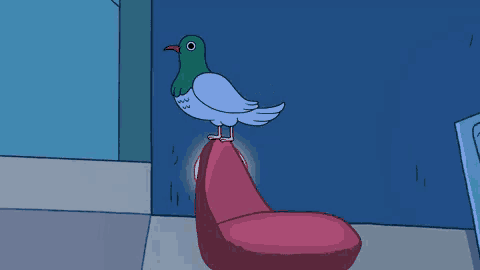
VERSIÓN ESPAÑOL:
¿Cómo va la gente de Blurt?
Les aúllo el chisme por el que seguro vienen a leer a mi cueva de meditación:
Las bromas se remontan a tiempos antiguos, cuando el humor y la ironía eran utilizados para criticar, satirizar y entretener, aunque es difícil determinar exactamente cuándo surgieron en el mundo inentendible de los humanos, podemos encontrar evidencias de su uso en diversas culturas y civilizaciones a lo largo de la historia, por ejemplo, en la antigua Grecia, se utilizaban las bromas y la ironía para criticar a los políticos y a la sociedad en general, por eso, los comediantes griegos, como Aristófanes, utilizaban el humor y la sátira para abordar temas de estas índoles.
En la Roma antigua, las bromas y la ironía también eran comunes, los escritores romanos, como Cicerón y Juvenal, utilizaban la ironía y la sátira para criticar lo que consideraban necesario, sobre todo en temas también de índole político y social. Para una época posterior, en la Edad Media, los trovadores y juglares utilizaban las bromas continuaron para criticar, pero en esta ocasión a la Iglesia, la cual era su fuente de inspiración.

Fuente
Y podría seguir aumentando la historia, la cual, siempre nos detalla que el foco de mayor atención para la sátira, las bromas e ironías, estaba en la política, la religión y el comportamiento humano. En la actualidad, continúan siendo focos de crítica, en donde se ha aumentado el cine, la música y hasta los memes como forma de protesta, pero también de entretenimiento.
El propósito antiguo de las bromas e ironías no iba más allá de la crítica objetiva a un tema específico, sin embargo, ahora vemos como las bromas tienen hasta un día especial en algunos países, en familias, en trabajos, en todo lugar en donde supuestamente tengas que sacarle a alguien una sonrisa, y escribo "supuestamente" porque no siempre una broma es sinónimo de risas.
Sé, porque yo también las he recibido y practicado, que las bromas son una forma de expresión que puede ser tanto divertida como hiriente. A menudo, se utilizan para romper el hielo en situaciones sociales o para agregar un toque de humor a la vida cotidiana, sin embargo, también pueden ser utilizadas para burlarse o ridiculizar a los demás, lo que puede generar sentimientos de inseguridad y malestar en donde la línea que separa una broma inofensiva de una que puede ser considerada ofensiva es muy delgada.
Creo que depende en gran medida del contexto en el que se realiza la broma, de la relación que se tiene con la persona a la que se dirige y, sobre todo, de la sensibilidad y el sentido del humor de cada individuo. Yo les hago bromas a mis hijos para generar un vínculo estrecho con ellos porque el mayor está camino a la juventud plena con sus dieciséis años, el sánduche (es decir el intermedio) está en plena adolescencia con sus doce años, y el menor todavía es un niño pequeño de ocho años que hace tan solo un par de años dejó de mojar la cama y de dormir en medio de sus padres. Mis bromas hacia ellos, hacia mi esposa, hacia mis amigos, hacia mis padres y suegros, e incluso hacia mi perro siberiano que ya cruzó el puente arcoíris, siempre han estado dentro del marco normal, del círculo de la confianza y respeto porque estoy consciente de que no quiero hacer con ellos lo que a veces han hecho conmigo a través de bromas bastante feas y pesadas.
Es importante recordar que lo que para una persona puede ser una broma inofensiva, para otra puede ser un tema sensible o incluso doloroso, porque cada persona es un "punto final y aparte" y tiene percepciones distintas dependiendo incluso del ambiente en el que fue criada, por lo tanto, es fundamental ser conscientes del impacto que nuestras palabras y acciones pueden tener en los demás y esforzarnos por ser respetuosos y empáticos en nuestras interacciones para generar buenas, duraderas y mejores relaciones interpersonales.
Sé que las bromas pueden ser una forma de conexión y diversión, a veces hasta son excelentes conductores de la integración, pero creo también tienen sus límites, que no deben salirse jamás del cerco de la de la sensibilidad y entendimiento hacia los demás para lograr un ambiente acogedor y de amistad sincera.
Sí, sé que no estamos exentos de cometer la idiotez de hacer bromas accidentales que llegan a herir o a ofender a alguien, pero por lo menos, tómalo como un error y discúlpate por tu acción incluso tratando de explicar que no fue tu intención herir a nadie, a la par, observa cómo los demás reaccionan a tus bromas y aprende de sus reacciones porque solo así obtendrás ayuda al ajustar tu sentido del humor que como siempre, en el ser humano, suele soltarse y comenzar a correr como potro si freno.

Fuente
Antes de realizar una broma, asegúrate de conocer bien a la persona o personas involucradas porque esto te ayudará a evitar temas sensibles o a no herir susceptibilidades e incluso salud física y mental porque, puede parecer exagerado, pero he visto casos de gente con humor pesado que le han hecho asustar en la calle a alguna persona que ni conocen y no sabían que esta pobre alma sufría del corazón... o sea, la broma le salió cara con una demanda bien interpuesta por familiares que no estaban dispuestos a aceptar que por un show de bromas ridículas de sustos a los transeúntes, su ser querido termine en una sala de urgencias con tratamiento de emergencia para que no se infarte y pierda la vida. Cuando he visto esto y los bromistas terminan siendo golpeados por sus víctimas o hasta disparadas, siempre me digo a mí mismo: "quieren respeto, ¡aprendan a respetar, güeyes!"
Si se van a concentrar en una broma, por lo menos asegúrense que esta no sea ofensiva, ni sexista, ni racista, ni xenófoba, ni discriminatoria, ni de maltrato en cualquiera de las formas de vida terrestre porque creo que el humor debe ser inclusivo y no excluyente. Evitar hacer bromas sobre las debilidades o vulnerabilidades de las personas también es un secreto para vivir una vida en paz y larga, ya que esto puede ser hiriente y dañino, aparte de que quien escupe al cielo le cae con intereses hasta excremento de palomas.

Fuente
Considerar el contexto en el que se realiza la broma es evita hacer bromas en situaciones serias o en momentos de estrés en donde se necesitan respuestas oportunas y no risas, por ejemplo, en duelos, lo menos que deben hacer es soltar chistes estúpidos para supuestamente bajar las tensiones. Si somos un alma bufona o bromista por naturaleza, por lo menos asegurémonos de que la broma no sea demasiado intensa o prolongada porque sí, el humor debe ser divertido, pero nunca pesado, insultante o abrumador.
Creo que la inteligencia tiene mucha relación con las bromas, por eso, si sientes que una broma puede tornarse ofensiva mejor no la realices porque así estarás evitando daños colaterales al resto y a ti mismo si el peso de la conciencia está día a día diciéndote que cambies de actitud al punto de no dejarte ni dormir.

Fuente
Ya los leo más tarde.
Chau.
ENGLISH VERSION:
How's it going, Blurt folks?
I am telling you the gossip that you are surely coming to read in my meditation cave:
Jokes date back to ancient times, when humor and irony were used to criticize, satirize and entertain. Although it is difficult to determine exactly when they arose in the incomprehensible world of humans, we can find evidence of their use in various cultures and civilizations throughout history. For example, in ancient Greece, jokes and irony were used to criticize politicians and society in general. Therefore, Greek comedians, such as Aristophanes, used humor and satire to address issues of this nature.
In ancient Rome, jokes and irony were also common. Roman writers, such as Cicero and Juvenal, used irony and satire to criticize what they considered necessary, especially on issues of a political and social nature. In a later period, in the Middle Ages, troubadours and minstrels continued to use jokes to criticize, but this time the Church, which was their source of inspiration.

Source
And I could go on adding to the story, which always tells us that the main focus of attention for satire, jokes and ironies was on politics, religion and human behavior. Today, they continue to be the focus of criticism, where cinema, music and even memes have increased as a form of protest, but also for entertainment.
The old purpose of jokes and ironies did not go beyond objective criticism of a specific topic, however, now we see how jokes even have a special day in some countries, in families, at work, in any place where you supposedly have to make someone smile, and I write "supposedly" because a joke is not always synonymous with laughter.
I know, because I have also received and practiced them, that jokes are a form of expression that can be both funny and hurtful. They are often used to break the ice in social situations or to add a touch of humor to everyday life, however, they can also be used to make fun of or ridicule others, which can generate feelings of insecurity and discomfort where the line that separates a harmless joke from one that can be considered offensive is very thin.
I think it depends greatly on the context in which the joke is made, the relationship that one has with the person to whom it is directed and, above all, the sensitivity and sense of humor of each individual. I make jokes to my children to generate a close bond with them because the oldest is on the way to full youth at sixteen years old, the sandwich (that is, the middle one) is in full adolescence at twelve years old, and the youngest is still a little boy of eight years old who only a couple of years ago stopped wetting the bed and sleeping between his parents. My jokes towards them, towards my wife, towards my friends, towards my parents and in-laws, and even towards my Siberian dog that has already crossed the rainbow bridge, have always been within the normal framework, the circle of trust and respect because I am aware that I do not want to do to them what they have sometimes done to me through rather ugly and heavy jokes.
It is important to remember that what for one person may be a harmless joke, for another may be a sensitive or even painful subject, because each person is a "full stop" and has different perceptions depending even on the environment in which they were raised, therefore, it is essential to be aware of the impact that our words and actions can have on others and strive to be respectful and empathetic in our interactions to generate good, lasting and better interpersonal relationships.
I know that jokes can be a way of connection and fun, sometimes they are even excellent drivers of integration, but I also believe that they have their limits, which should never go beyond the fence of sensitivity and understanding towards others to achieve a welcoming environment and sincere friendship.
Yes, I know that we are not exempt from committing the idiocy of accidentally making jokes that hurt or offend someone, but at least, take it as a mistake and apologize for your action, even trying to explain that it was not your intention to hurt anyone. At the same time, observe how others react to your jokes and learn from their reactions because only then will you get help in adjusting your sense of humor that, as always, in human beings, tends to get loose and start running like a colt without brakes.

Source
Before you pull off a prank, make sure you know the person or people involved well because this will help you avoid sensitive topics or hurt feelings and even physical and mental health because, it may seem exaggerated, but I have seen cases of people with heavy humor who have scared someone in the street that they don't even know and they didn't know that this poor soul suffered from heart problems... that is, the prank cost them dearly with a well-filed lawsuit by relatives who were not willing to accept that because of a show of ridiculous pranks to scare passersby, their loved one ends up in an emergency room with emergency treatment so that they don't have a heart attack and lose their life. When I have seen this and the pranksters end up being beaten by their victims or even shot, I always tell myself: "they want respect, learn to respect, güeyes!"
If you are going to focus on a joke, at least make sure that it is not offensive, sexist, racist, xenophobic, discriminatory, or abusive to any form of life on Earth because I believe that humor should be inclusive and not exclusive. Avoiding making jokes about people's weaknesses or vulnerabilities is also a secret to living a peaceful and long life, as this can be hurtful and damaging, and if you spit in the sky, you will get pigeon droppings with interest.

Source
Considering the context in which the joke is made is to avoid making jokes in serious situations or in times of stress where timely responses are needed and not laughter, for example, in duels, the least you should do is tell stupid jokes to supposedly lower tensions. If we are a clown or joker soul by nature, at least let's make sure that the joke is not too intense or prolonged because yes, the humor should be funny, but never heavy, insulting or overwhelming.
I think that intelligence has a lot to do with jokes, so if you feel that a joke can become offensive, it is better not to make it because in this way you will be avoiding collateral damage to others and to yourself if the weight of conscience is day after day telling you to change your attitude to the point of not letting you sleep.

Source
I'll read them later.
Bye.

Así como lo son los apodos, las bromas en Colombia también están a la orden del día y creo que ellas elevan nuestro estado de ánimo, pero también suelen comportarse como una intromisión a la privacidad, a una obligación de tener que aceptar con humor fingido lo que nos quieren imponer, cosa que por supuesto está mal.
Yo también hago bromas, también me las han jugado a mí, lobo, pero siempre han sido estables en el marco del respeto. Aquí un tiempo estuvo de moda molestar a la gente asustándola, la mayoría de veces no pasaba nada, pero en otras, o bien los asustados terminaban con arritmias fuertes y desmayos, o bien los asustadores terminaban golpeados y agredidos de forma bien fea, como el caso del video que pudiste.
A veces las bromas no solo se convierten en un acto abusivo...
Gracias por la publicación, lobo. Muchos saludos a tu esposa y tus niños. Que Dios los bendiga grandemente 🤗🤗